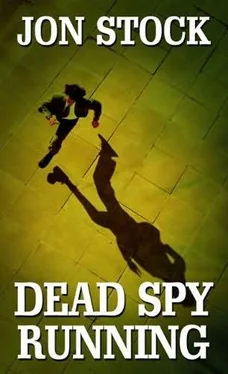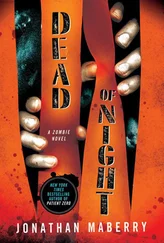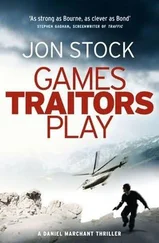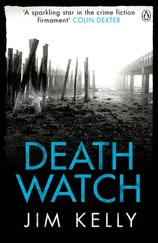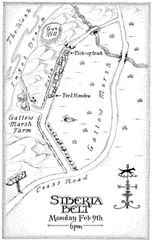Jon Stock - Dead Spy Running
Здесь есть возможность читать онлайн «Jon Stock - Dead Spy Running» — ознакомительный отрывок электронной книги совершенно бесплатно, а после прочтения отрывка купить полную версию. В некоторых случаях можно слушать аудио, скачать через торрент в формате fb2 и присутствует краткое содержание. Год выпуска: 2009, Издательство: St. Martin, Жанр: Триллер, на английском языке. Описание произведения, (предисловие) а так же отзывы посетителей доступны на портале библиотеки ЛибКат.
- Название:Dead Spy Running
- Автор:
- Издательство:St. Martin
- Жанр:
- Год:2009
- ISBN:нет данных
- Рейтинг книги:3 / 5. Голосов: 1
-
Избранное:Добавить в избранное
- Отзывы:
-
Ваша оценка:
- 60
- 1
- 2
- 3
- 4
- 5
Dead Spy Running: краткое содержание, описание и аннотация
Предлагаем к чтению аннотацию, описание, краткое содержание или предисловие (зависит от того, что написал сам автор книги «Dead Spy Running»). Если вы не нашли необходимую информацию о книге — напишите в комментариях, мы постараемся отыскать её.
Dead Spy Running — читать онлайн ознакомительный отрывок
Ниже представлен текст книги, разбитый по страницам. Система сохранения места последней прочитанной страницы, позволяет с удобством читать онлайн бесплатно книгу «Dead Spy Running», без необходимости каждый раз заново искать на чём Вы остановились. Поставьте закладку, и сможете в любой момент перейти на страницу, на которой закончили чтение.
Интервал:
Закладка:
‘He’s here, sir, in Delhi.’
Spiro spun round to face the junior officer. ‘Here? What the hell’s he doing here?’
‘He’s at the airport, sir. Flew in on a Gulfstream this morning. The Indians are awaiting our authorisation before allowing him to disembark.’
The last thing Spiro needed was to have Alan Carter in Delhi. He would call Straker, find out what was going on. Carter had been pulled off the Marchant case when he went soft on the British renegade. This was Spiro’s shout now, an opportunity to rehabilitate himself after Poland. The DCIA had charged him with coordinating the Agency’s role in the presidential visit — his last chance, Straker had said. He wasn’t about to let Carter embarrass him again.
‘That’s the first sensible thing they’ve done in days. Let Carter fry. Tell the Indians there’s a problem with the paperwork. I’m sure they’ll understand.’
Salim Dhar pushed his way through the crowded alleyways of Old Delhi, thinking about his contact. Would he be a farangi , or dark-skinned, like his target? All Dhar knew was that he worked at the infidel’s embassy in Delhi. He turned into Kinari Bazaar, sidestepping a woman with a wicker basket of baby aubergines balanced on her head. On either side of him as the lane became narrower, sparkling wedding gear lit up the shop windows: grooms’ turbans, brides’ bangles, embroidered jackets glistening with thick silver thread, garlands made from rupee notes, lace tinsel, giant rosettes.
He felt at home here, reassured by the warren of lanes and Mughal doorways, the call of a nearby muezzin , the teeming company of Muslim brothers. He turned into Dariba Kalan, the street of pearls and precious stones in Shah Jahan’s day, now famous for its gold and silver jewellers. To his left a jalebi wallah scooped out bright orange strands of syrup-soaked batter from a pan of oil and shook sugar over them. On a normal day, Dhar would have stopped to buy some, but today wasn’t normal. He glanced at his watch and moved on towards the Jama Masjid, looking out for a cycle rickshaw.
The arrangement had been designed to mirror the chaos of Chandni Chowk. His contact would pass by the mosque’s main entrance at around midday. More important than the exact time was the person in the back seat of the rickshaw, who would be wearing a black baseball cap. The rickshaw would stop outside the mosque, where its passenger would step out and pay off the driver. Dhar would then climb in and ask to be taken to Gadodia Market, just off Khari Baoli. Before the rickshaw set off, however, his contact would approach and ask if he was going anywhere near the town hall. Dhar would confirm that he was, and they would set off together in the rickshaw through the back streets of Chandni Chowk while he was briefed on the evening’s itinerary.
Dhar liked the plan, because the noisy crowds offered good cover and the congestion would make it impossible for anyone to follow them without being noticed. But he was becoming anxious when, at 12.15 p.m., no cycle rickshaws had stopped outside the mosque. He looked at the people around him, one of whom must be his contact. To avoid attention he had agreed to have his shoes shined, the ‘semi-deluxe’ service.
Then he noticed a rickshaw appear in the distance, in the midst of a sea of people flowing up Dariba Kalan. The scene reminded him of the television images he had seen of the London Marathon, heads bobbing up and down, everyone focused on the road ahead. As the rickshaw drew near, zigzagging through the crowd, he could see someone wearing a baseball cap in the back. He paid off the shoe boy and glanced around. Still there was no one he could identify.
The rickshaw driver was now outside the mosque gates. Dhar stepped in closer, keeping an eye out for similar movement around him. The passenger climbed down from the rickshaw, not looking up. Dhar nodded at the driver, letting him know that he was his next fare, then asked for Gadodia Market. The driver gestured for him to get in. Not a flicker of recognition from anyone. Dhar settled back on the thin plastic cushion.
‘ Chalo ,’ he said to the driver, already admiring the coolness of his unseen contact. And then a figure appeared from nowhere at the side of the rickshaw.
‘Are you going near the town hall?’ The question was asked in perfect Urdu.
Dhar smiled. ‘Get in,’ he said, making room next to him. He hadn’t been expecting a woman.
49
‘The Prime Minister was adamant that you shouldn’t be killed,’ Armstrong said, wiping the last traces of blood from Marchant’s bruised face. She put the sponge back in the bowl, red strands swirling in the soapy water. ‘The Americans weren’t so concerned. Their minds were on other things. We compromised.’
‘You mean they sent for you. Very reassuring.’
But Marchant was pleased Armstrong had come. He could see out of both eyes now, the cuts in his forehead neatly stitched, and he was wearing a clean, if ill-fitting, set of clothes: jeans and a collarless cotton shirt. Two wooden chairs had been brought into the cell when the doctor had checked him over. The woman sitting in front of him was very different from the frumpy figure he remembered from London, less stiff, more feminine. Perhaps it was the cream salwar khameez , simply embroidered at the front. He had only ever seen her in dark trouser suits.
‘Daniel, there’s something we need to talk about. It’s Leila.’ Marchant had to suppress an involuntary start. It was strange to hear her name again. ‘Marcus Fielding has made some very strong allegations about her since you’ve been away.’
‘She was working for them, wasn’t she?’
‘For who?’
‘Langley. She set me up at the marathon. It’s the only explanation. She could have explained everything, cleared my name, but she didn’t.’
Armstrong paused. ‘Did Leila ever talk to you about her mother?’
‘Not often.’
‘Did you ever meet her?’
Marchant was struggling to work out where Armstrong was going with her questions. ‘She never encouraged it. Why?’
‘But you knew where her mother was?’
‘In a home. Hertfordshire, I think. Leila was embarrassed about her.’
‘Her mother went back to Iran soon after her father died. She never set foot in a British nursing home.’
Marchant said nothing. He thought back to Leila’s tears, the phone calls, the reluctance to talk, her worry that her mother was being mistreated.
‘The Americans knew,’ Armstrong continued. She could have chosen to be triumphant, but she appeared to take no satisfaction in what she was revealing. ‘They used it to recruit Leila. Her vetting officer thought the mother was still in the UK. Leila never informed him that she’d gone back to Iran. The officer’s been suspended.’
‘Did the Americans tell you she was working for them?’
‘Eventually. Chadwick put on a brave face, said we already knew. But they never told us how they turned her. She knew her career would have been over if MI6 had found out her mother wasn’t still in Hertfordshire. The Americans threatened to inform her vetting officer. It kept her loyal to Langley.’
‘Why are you telling me this?’
‘Because Fielding said something else.’ She paused. Her tone was almost maternal now. ‘He thought Leila was ultimately working for Iran.’
‘Iran?’ Marchant said quietly. He knew as he repeated the word that Fielding was right. It was the final leap he had never been able to make, but the Vicar had, his judgement unswayed by love.
Fielding knew that time was running out. It was almost fifty degrees on the tarmac where the plane was parked, in a quiet corner of Indira Gandhi airport. The aircon unit was on the blink, and the plane didn’t have enough fuel for another flight, even if the control tower gave them clearance, which was unlikely.
Читать дальшеИнтервал:
Закладка:
Похожие книги на «Dead Spy Running»
Представляем Вашему вниманию похожие книги на «Dead Spy Running» списком для выбора. Мы отобрали схожую по названию и смыслу литературу в надежде предоставить читателям больше вариантов отыскать новые, интересные, ещё непрочитанные произведения.
Обсуждение, отзывы о книге «Dead Spy Running» и просто собственные мнения читателей. Оставьте ваши комментарии, напишите, что Вы думаете о произведении, его смысле или главных героях. Укажите что конкретно понравилось, а что нет, и почему Вы так считаете.
